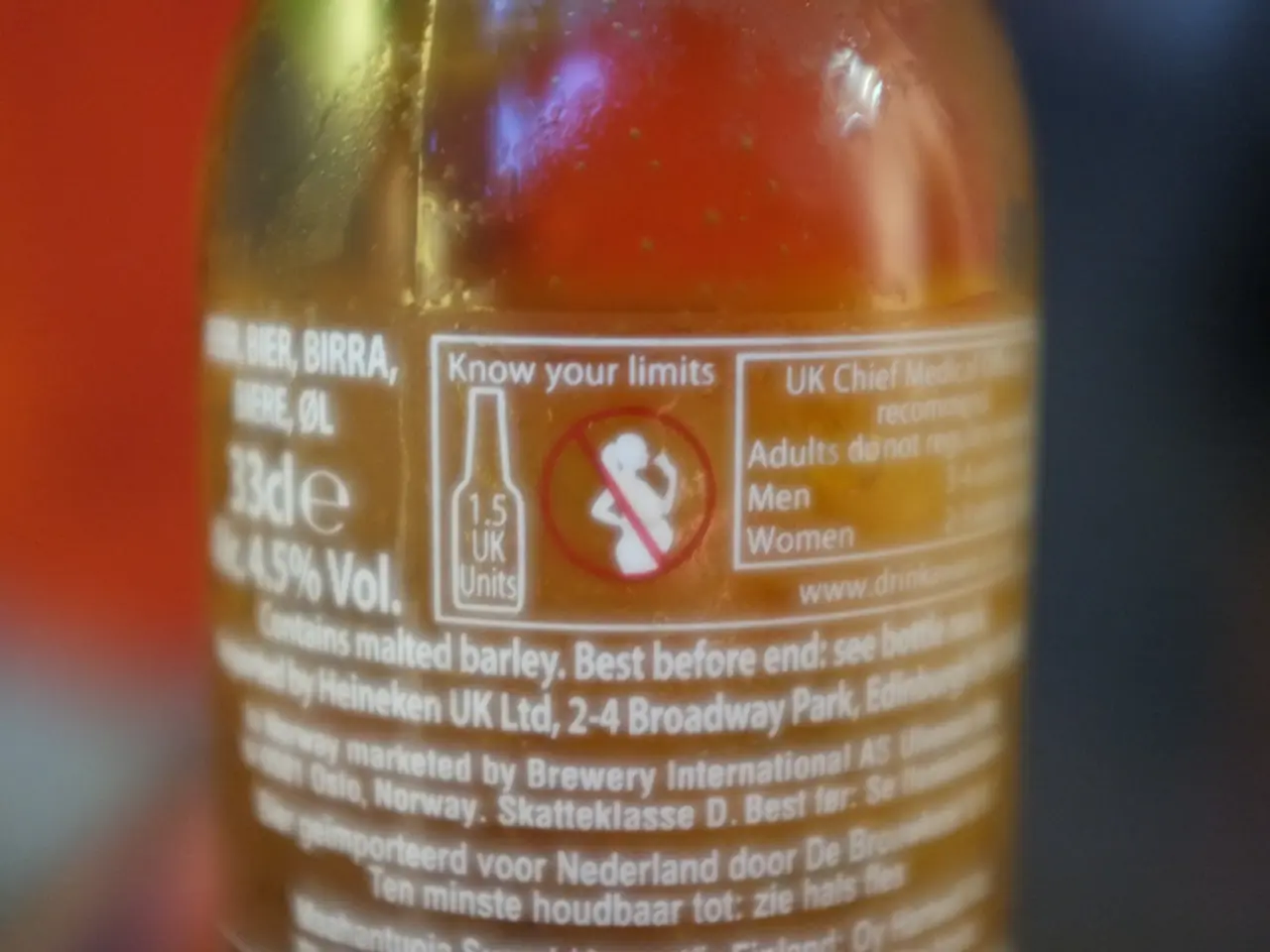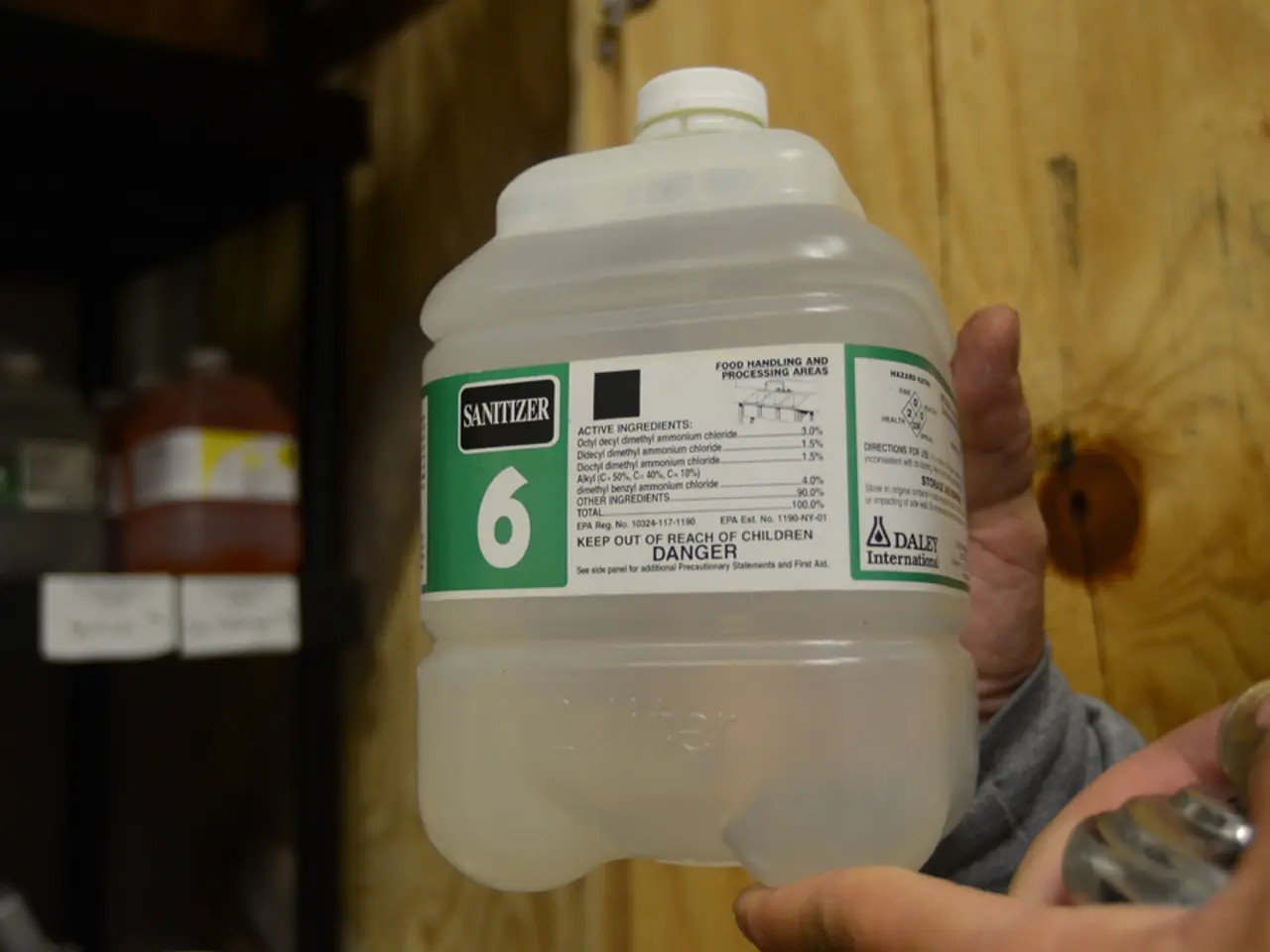Federal authorities take steps to restrict kratom, a powerful opioid substitute
In a move aimed at curbing the opioid crisis, the Department of Health and Human Services (HHS) is set to announce new measures against a potent compound derived from kratom leaf known as 7-hydroxymitragynine (7-OH). The FDA, under the Trump administration's recent policy, is leading the charge to designate 7-OH as a Schedule I controlled substance at the federal level.
The focus of these regulatory efforts is on synthetic or enhanced forms of 7-OH, not the natural leaf or tea preparations of kratom. This is due to the fact that 7-OH acts as a strong opioid-like compound, binding to brain neuro-receptors similarly to morphine.
Seven companies have been accused by the FDA of illegally marketing 7-OH products, often found in enhanced kratom products such as flavored vapes, gummies, and shots. These products are sold openly without regulation, raising concerns due to their potency and potential for abuse.
The FDA has warned consumers about the risks associated with 7-OH products, sending out warning letters to companies marketing these supplements illegally. The agency deems these products potentially dangerous and unproven.
The federal government's rationale for scheduling 7-OH involves public health concerns and opioid crisis mitigation. The aim is to prevent a further wave of addiction, with statements noting the huge societal cost of opioid misuse.
However, some critics argue that there is insufficient evidence linking 7-OH to overdose deaths and claim it may even aid in opioid addiction recovery. Despite these views, the regulatory trajectory remains unaltered.
The DEA’s final ruling on 7-OH classification is forthcoming and is anticipated to include a public comment period before formal enforcement occurs.
Christopher McCurdy, a professor of medicinal chemistry at the University of Florida, describes 7-OH as "essentially legal morphine being sold over the counter."
A press conference is scheduled for Tuesday, including remarks from HHS Secretary Robert F. Kennedy Jr. and kratom advocate Melody Woolf.
In summary, regulators are moving to ban synthetic or concentrated 7-OH kratom compounds due to their opioid-like effects and risks, while natural kratom remains mostly unregulated at the federal level. This reflects growing concern over misuse potential amid the ongoing opioid epidemic. The FDA warns that use of 7-OH can lead to side effects including nausea, sedation, breathing problems, and addiction.
In an effort to combat the opioid crisis, the focus of regulatory measures is shifting to synthetic or enhanced forms of 7-OH, a potent compound found in kratom, due to their opioid-like effects and potential for abuse. Meanwhile, the natural leaf or tea preparations of kratom remain mostly unregulated at the federal level.
Despite arguments suggesting insufficient evidence linking 7-OH to overdose deaths and potential benefits in opioid addiction recovery, the federal government deems 7-OH products as potentially dangerous and unproven, leading to efforts to regulate or ban their use.




